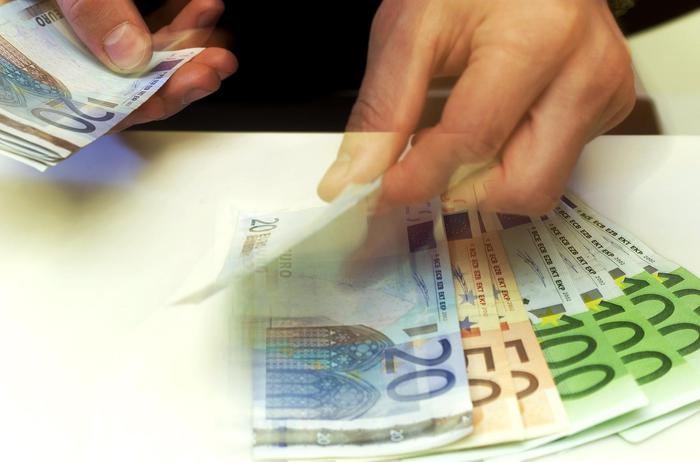Yes, there is a recession in the euro zone. By the hair and with VAR review, but the monetary area has chained two quarters of economic contraction and, therefore, it can be said that there has been a technical recession in the last quarter of 2022 and the first quarter of 2023. In both, the fall in activity compared to the previous quarter was 0.1%, according to the latest revision by Eurostat of the data from the beginning of this year. These numbers correct the first known estimates, which pointed to growth between January and March of 0.1%.
At the beginning of this year, once the very gloomy predictions of the summer of 2022 about the impact that Russia's invasion of Ukraine and the energy crisis would have on the European economy were left behind, it was clear that Eurozone activity had stagnated, but there would not be a major economic collapse. Whether there was a recession or not, was something that was going to be decided by tenths and if there was it would not go beyond the stage of a technical recession. "The same goes for the headlines...", Ángel Talavera, of Oxford Economics, pointed out in January, downplaying that small contraction in case it arrived.
It has arrived and for very little, as expected. And it has needed two data reviews to corroborate it. Because with the first estimates of April and May, the conclusion was that there was no by the hair. It was at the third evaluation, with more consolidated data, when it was found, for example, that Germany, the first economy in the euro zone, is indeed in recession. The latter was already known for a couple of weeks and also after a review of the first known data from the German statistical institute, Destatis. Another country that has contributed to the contraction has been Ireland. Last Friday its statistical office announced a fall in activity of 4.6% in the first quarter, a much steeper decline than that initially calculated by Eurostat, the European body, which estimated it at 2.7%.
The analysis of the data released on Thursday confirms the importance of Germany in the European economy. Along with it and Ireland, only two other small countries in the euro zone saw their activity fall at the end of 2022 and the beginning of 2023, Estonia and Lithuania; Instead, it is the area as a whole that is in recession. Not so the whole EU. This is due to the pull of Poland, which grew by 3.8%. Its contribution takes the aggregate data of the Twenty-seven to positive territory, 0.1%, also one tenth, which in this case serves to prevent the recession from being confirmed (in the fourth quarter of 2022, on the other hand, there was a contraction of 0.2%).
"The significant downward revision was mainly due to Germany revising its figures downwards as new data became available. This reinforces the idea that activity in March was very weak, making a quick rebound in the second quarter unlikely. Given that the May survey data are generally weak, we are likely to only get a modest rebound after two quarters of decline," economists at Dutch bank ING have urgently analyzed.
Christine Lagarde, president of the European Central Bank (ECB), said on Monday that the effects of the rate hike were beginning to reach the economy. It is probably too much to say that the fall in household consumption in the last year is due only to the monetary restrictions that the ECB has been imposing since July last year. Higher credit prices may have played its part. But surely the prolonged rise in prices and the loss of purchasing power of wage earners, which has led citizens to spend less joyfully, has done so to a greater extent. Public spending would also have contracted.
The slight negative numbers of the last quarters are not enough for the comparison with the same period of the previous year to become negative. If the economic activity of the beginning of 2023 is compared with that of 2022, the balance is positive. There is growth of 1%, both in the euro area and in the EU as a whole. Spain stands out in this chapter, as it is the Member State with the highest growth, 3.8%, of the entire Union.
Follow all the information of Economy and Business on Facebook and Twitter, or in our weekly newsletter

/cloudfront-eu-central-1.images.arcpublishing.com/prisa/CLX2ME63FZMMZ4BRGWKLH64HEI.jpg)

/cloudfront-eu-central-1.images.arcpublishing.com/prisa/JVLB4BGCGKEAEERWV6XUTKFN2U.jpg)










